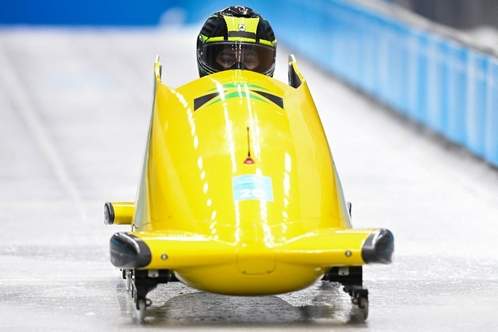On Friday night I had the privilege of hosting the World Olympians Association (WOA) online event to name and honour those recognised as Olympians for Life at the Beijing Games.
The International Olympic Committee (IOC) Department of Culture and Heritage worked together with the WOA to create the designation, which recognises those Olympians who have had an extraordinary impact in their communities and the world, particularly after their sporting careers.
Each Games five Olympians, one from each Olympic continent, are named. The first such naming was 2016 in Rio de Janeiro.
This year, in Beijing, the following outstanding Olympians were recognised: Simidele Adeagbo (Nigeria, skeleton); Alain Calmat (France, figure skating); Clara Hughes (Canada, speed skating and cycling); Shiva Keshavan (India, luge); and Ben Sandford (New Zealand, skeleton).
Three of the five — Simidele, Shiva, and Ben — said they were directly inspired by the Jamaica bobsleigh team. Shiva shared with the gathering how, in 1998, he arrived at his first Olympic Games in Nagano, Japan, looking and feeling different than almost everyone else.
But it was the Jamaican bobsleigh team, which, like himself was different, that embraced and adopted him and gave him encouragement to go on. Post competition Shiva continues to be active in the Olympic movement in India and the wider Himalayan region.
Simidele is doing the very important work on the continent of Africa, promoting life and leadership skills for young people through her SimiSleighs Leadership and Sports programme. Ben is an athlete representative for both his National Olympic Committee (NOC) and World Anti-Doping Agency (WADA). As an athlete he decided to not just complain but to be part of the solution. When you drop a pebble in the water, you can never know for sure how far the ripples go.
I got put on the spot during an interview with CBC Sports out of Canada when I was asked about opposition to China hosting the games. The question had as its background accusations of human rights abuses related most recently to Hong Kong and the Uyghurs in the north-western region of Xinjiang.
I ducked and dodged for fear of causing a diplomatic row, but mostly because I was not sufficiently informed. My natural inclination is to have the Games, to put sport first, but I thought about the anger I felt towards Lawrence “Yagga” Rowe for going on the Rebel Tour of South Africa in 1983.
I wondered if some people see athletes participating in Beijing the same. Maybe. I do have, though, a different hope, maybe an illusion.
I have reflected on the Christmas Truce in which there was a series of unofficial ceasefires along the Western Front during the First World War. On Christmas Day 1914, a team from the Royal Welch Fusiliers played a football match against the German Batallion, which the Germans won 2-1. In war, commonality was found in sport.
Twelve years earlier, in 1902, Thomas Hardy’s poem, The Man He Killed was published in Harper’s Weekly. It reads in part:
“Had he and I but met
By some old ancient inn,
We should have sat us down to wet
Right many a nipperkin!
“Yes; quaint and curious war is!
You shoot a fellow down
You’d treat if met where any bar is,
Or help to half-a-crown.”
Well, many a nipperkin are being wet here in Beijing in the lounge where I am sitting right now and doubtless in other places, and I would like to think that people from their different backgrounds — Slovaks, Germans, Chinese, South Koreans, Jamaicans — are building an understanding of our shared commonality and our shared destiny, and that, somehow, through being here we are building more bonds than creating divisions.
Clearly much work needs to be done to forgive, to heal, to agree on human rights. It’s been almost 60 years since Lij Tafari Makonnen, more properly known as His Imperial Majesty Haile Selassie I, conquering lion of the tribe of Judah, king of kings and elect of God, admonished mankind:
“Yet this is the ultimatum presented to us, secure the conditions whereby men will entrust their security to a larger entity or risk annihilation; persuade men that their salvation rests in the subordination of national and local interests to the interests of humanity, or endanger man’s future. These are the objectives, yesterday unobtainable, today essential, which we must labour to achieve.”
We have so much work left to do. It is my hope that being here will build bonds of friendship and understanding, and that some little pebble that may be dropped in the pond of humanity gathered here may start a ripple that, perhaps in some unknown distant future will serve to create a tomorrow of which His Imperial Majesty so eloquently spoke.




 and then
and then